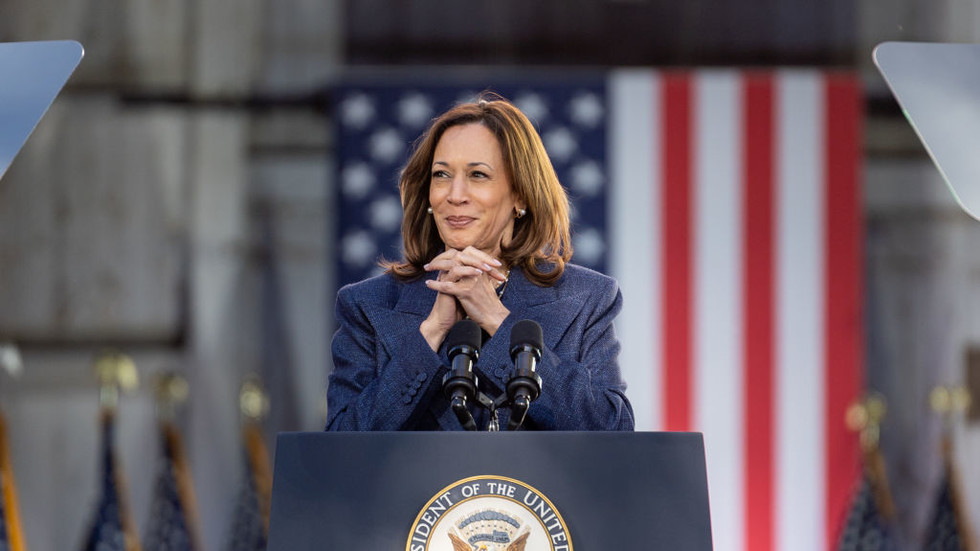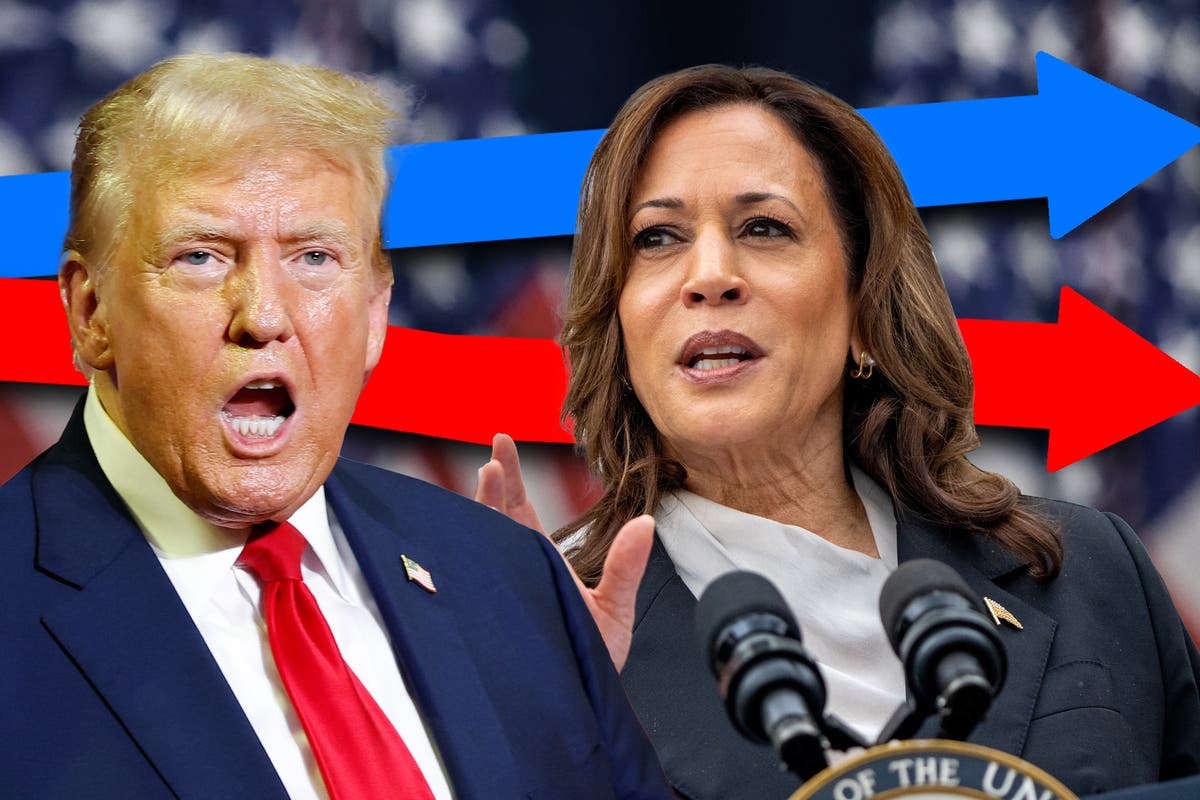
For free real time breaking news alerts sent straight to your inbox sign up to our breaking news emails
Sign up to our free breaking news emails
The leaders of the world’s top emerging economies have begun arriving in the western Russian city of Kazan where president Vladimir Putin will host the 16th Brics summit, the first gathering of the bloc since its expansion last year.
The three-day summit begins on Tuesday and will see participation by 33 countries, with 24 represented at the leadership level, Russian media reported.
Mr Putin, who is wanted by the International Criminal Court for alleged war crimes in Ukraine, will be seen shaking hands with multiple world leaders, including China’s Xi Jinping, India’s Narendra Modi, Turkey’s Recep Tayyip Erdogan, and Iran’s new president Masoud Pezeshkian.
Brics, originally a diplomatic forum comprising Brazil, Russia, India, China, and South Africa, sees itself as a counterweight to the Western-dominated G7. It has garnered increased international attention over the years, with the latest summit attracting a level of interest rarely seen since its founding 15 years ago.
Once regarded as a loose association of disparate emerging economies, Brics has taken on a more concrete form in recent years, driven initially by China with added impetus from Russia since the start of the Ukraine war in February 2022.
The bloc celebrated its first major expansion last year when Iran, the UAE, Ethiopia and Egypt joined. Other countries have since expressed interest in joining the group, potentially boosting its economic influence.
Who is going?
China will be represented at the Kazan meet by president Xi, the Chinese foreign ministry said on Friday. Mr Xi will participate in the summit of leaders and a number of expert dialogues, engaging in discussions with fellow heads of state on international matters.
Despite its ongoing economic challenges, China remains the engine at the heart of Brics, making up about 70 per cent of the bloc’s combined GDP in 2022.
“China is ready to work with all parties to strengthen Brics cooperation, ushering in a new era of unity and self-reliance in the Global South, and jointly promoting peace and development worldwide,” said Mao Ning, a spokesperson for the ministry.
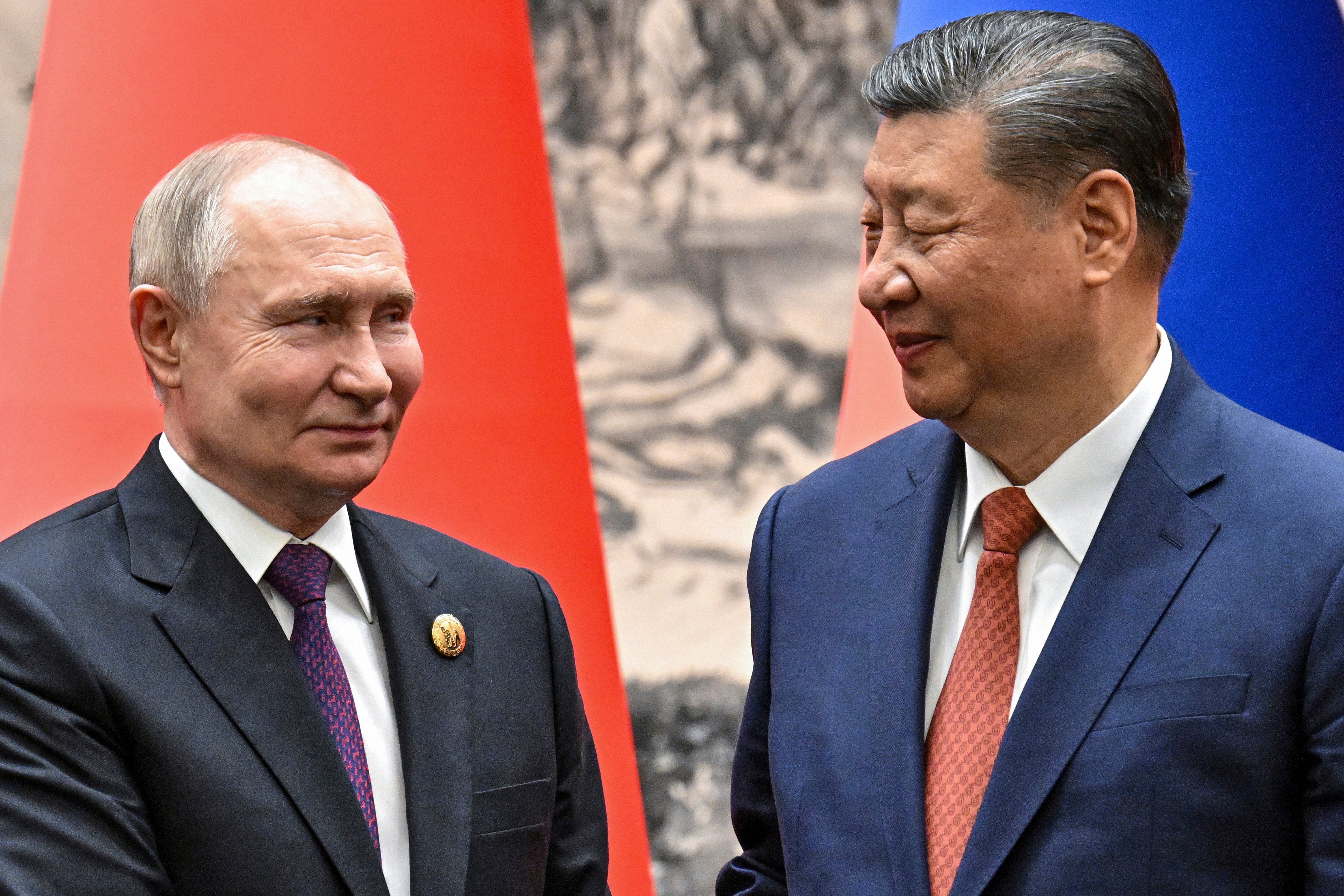
India is sending prime minister Modi travelling to the summit. His attendance is seen as a significant moment for Indian diplomacy – since the start of the war in Ukraine, New Delhi has maintained close diplomatic ties with Russia while also working to increase trade connections with the West.
The summit is seen as an opportunity for Mr Xi and Mr Modi to meet amid an ongoing standoff along their countries’ disputed border, although no bilateral meeting has been announced yet. India’s foreign ministry announced on the eve of the summit on Monday that a deal had been reached over troop patrols and the disengagement of forces at the border.
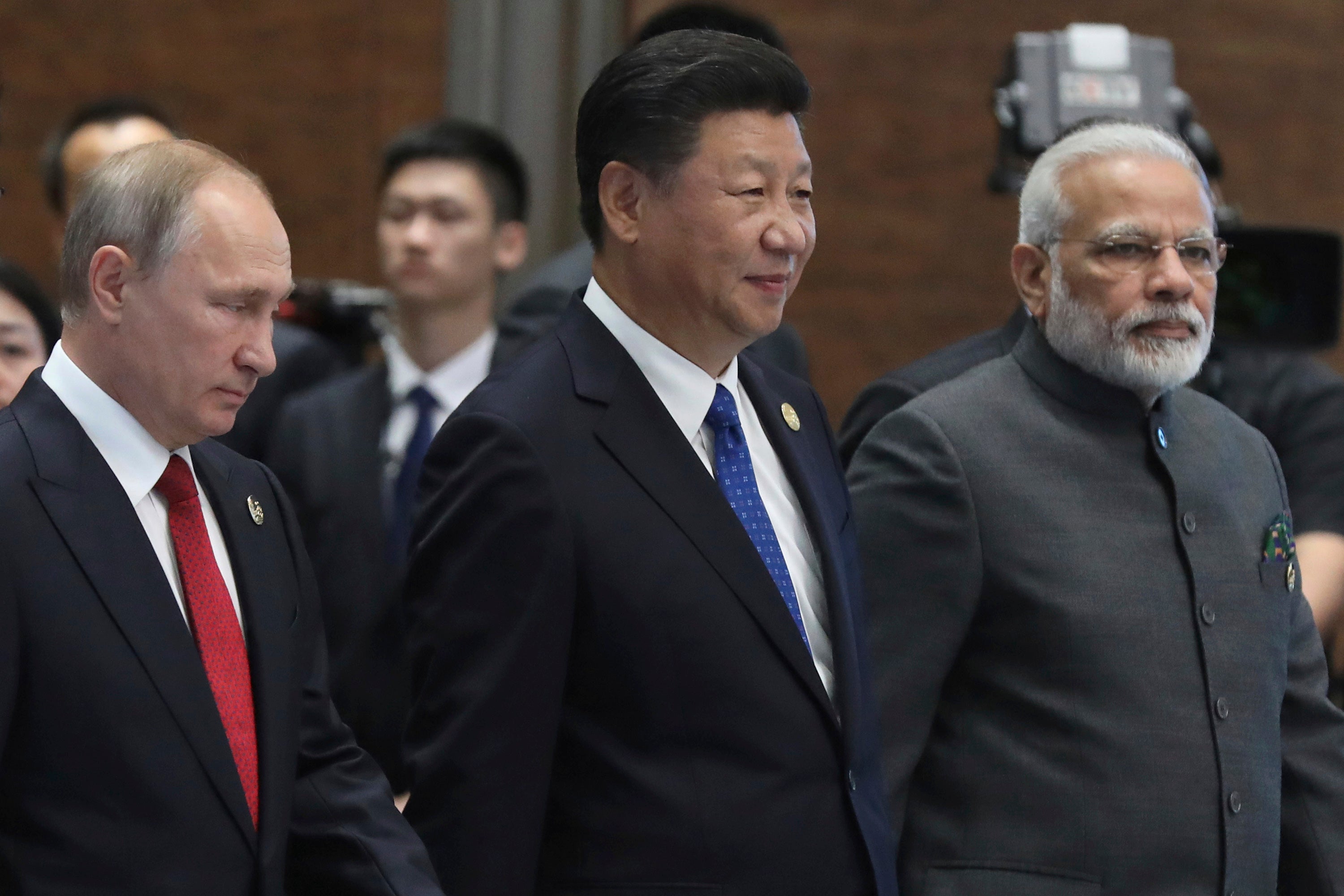
The host of the previous summit, South African president Cyril Ramaphosa, will lead a large delegation in Kazan, the country’s envoy Mzuvukile Maqetuka said. The envoy called the 2024 summit “highly significant”.
The leaders of Egypt, Ethiopia, Belarus, Armenia, Kazakhstan, Mongolia, Bolivia, Congo, and Laos are also set to attend.
President Mohamed Bin Zayed Al Nahyan of the UAE has already arrived in Russia and met with Mr Putin on the sidelines of the summit.
Who isn’t going?
President Luiz Inacio Lula da Silva of Brazil, one of the main founding members of Brics, cancelled his trip to Russia citing an emergency medical issue.
Mr Lula’s doctor, Roberto Kalil, said in an interview with the GloboNews TV channel that the president suffered a fall that caused “great” trauma to the back of his head, requiring stitches and resulting in a “small brain haemorrhage”.
He will participate in the Brics meeting via videoconference, his office said.
Mr Lula is scheduled to host the next G20 leaders’ summit later this year – one which Mr Putin is set to skip in light of the ICC arrest warrant against him.
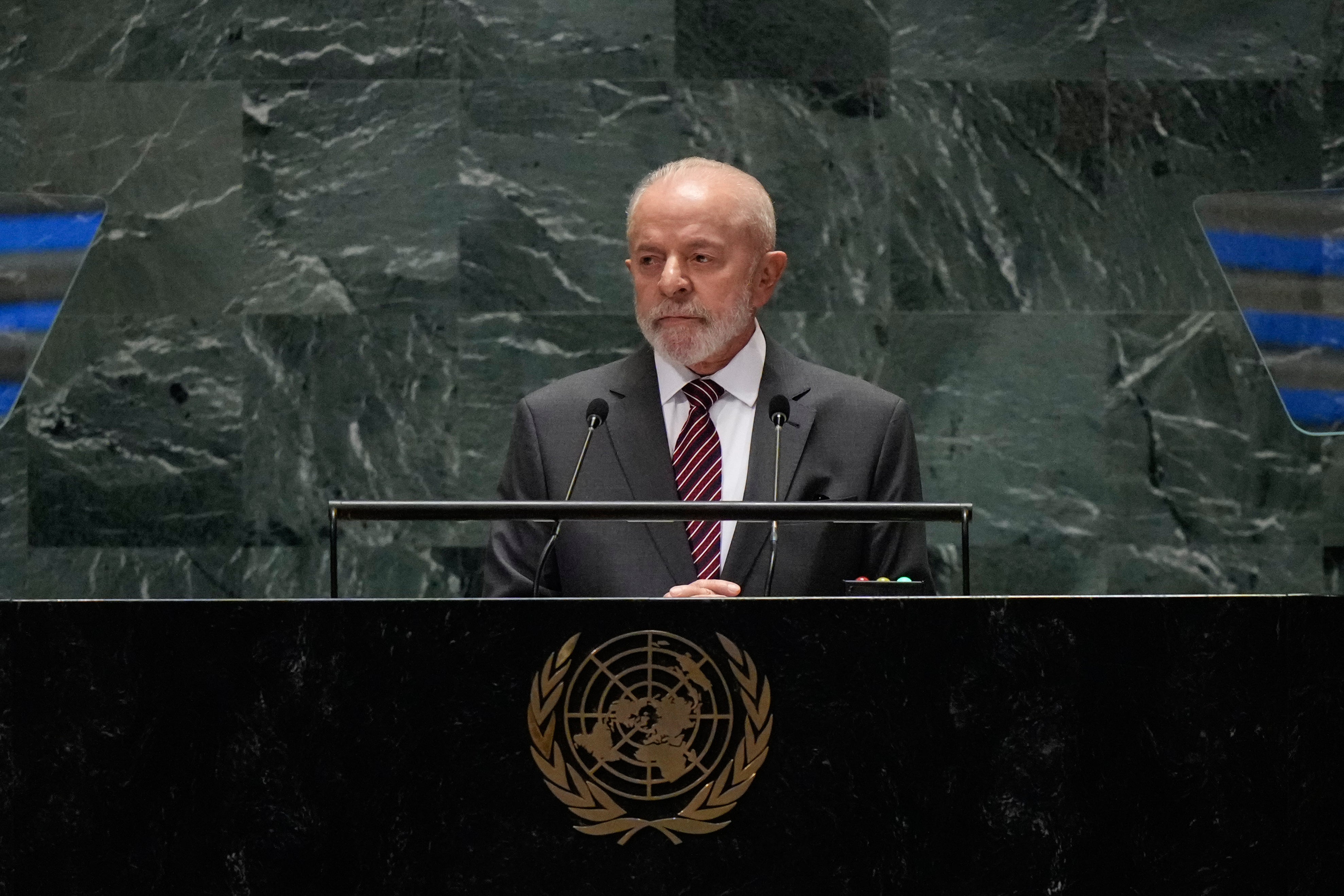
Expansion of Brics
The expansion of Brics is seen as a win for Mr Xi, who is trying to boost Beijing’s global clout by courting nations that share similar views on the US dominance of world affairs.
While South Africa has backed Mr Xi’s push, India has been hesitant given that a larger and stronger block could give more power to Beijing and enable it to push its own agenda. Brazil has also shown scepticism, maintaining good ties with Western nations.
Speaking at a conference with media organisations from Brics member states, Mr Putin said: “I am absolutely convinced that this [expansion of Brics] will increase interest in the organisation, influence in the world and authority. We are already seeing this.”
According to Mr Putin, at least 34 countries have expressed interest in joining the bloc, with Malaysia, Thailand, Nigeria, Bolivia and even Turkey, a Nato member, on the waiting list.
Top agenda of Brics 2024
Pivoting away from the US dollar as a common currency for international trade, commonly referred to as dedollarisation, has been one of the focus areas of the grouping. The summit under Mr Putin’s presidency plans to transform the international monetary and financial system as a priority in order to negate the impact of Western sanctions, like those imposed on Russia over its invasion of Ukraine.
As the chair of the bloc, Russia has proposed the formation of the Brics Cross-Border Payment Initiative, which will allow members of the organisation to use their national currencies to trade.
Brics members have also suggested creating an alternative messaging system to bypass the SWIFT interbank communication network, which is controlled by the US and therefore susceptible to Western sanctions.

 By The Independent (World News) | Created at 2024-10-21 11:05:18 | Updated at 2024-10-21 15:02:49
4 hours ago
By The Independent (World News) | Created at 2024-10-21 11:05:18 | Updated at 2024-10-21 15:02:49
4 hours ago


